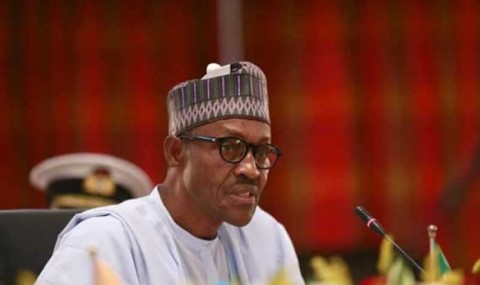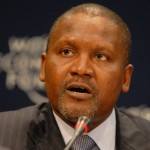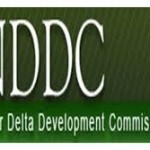The Hope Message Nigerians Deserve From Their Leaders
Articles/Opinion, Featured Contributors/Columnists, Latest Headlines Tuesday, April 26th, 2016
By Femi Fabiyi (femif826@gmail.com)
Nigerians are one of the most religious people in the world. By noon on Fridays, Muslims all over the country close shops and offices, and head to the mosques for prayers. On Sundays, streets and shopping malls are deserted while Christians are glued to churchprograms, praying for Shelter, Prosperity, Grace, Wisdom and Understanding. Every Nigerian spent part of their weekends listening to the teaching of endurance, perseverance, miracle, love and passion. On weekdays however, Nigerians watch politicians mumbling their theatric messages, loaded with untested and undefined analytics. In some cases, theories are concocted; taunting the minds of the needy.
In the past few weeks, various scripts have been flying around, illustrating the next path of recovery the country should tow. I had the opportunity to listen to a Nigerian senatorlecturingits peopleabout the successes of eminent personalities like Dangote, Alakija, Adenuga and a host of other successful Nigerians. Interestingly, he also extended his rhetoric toidentifyingsuccessful Nigeria students in the USA Ivy League and British schools to Nigeria structure. Well, Nigeria leaders owe the people a well-thoughtful road map to resurrection, highlightingissues that are holding the country back and efforts that are being made to move the country forward.
Critical on Nigerian’s menu lists are food, power, gas, water, health care, shelter, security, improved education systems and a responsible welfare programs. Small business owners in Nigeria face the most challenging business uncertainties in any evolving market. Government and small business employees have had theirsalaries hedgedagainst unending debts. Big corporations are struggling to manage their recurrent budgets – a good chunk goes to power and security. Importer’s lifeline is at the mercy of the Custom’s controller.Graduates are walking the streets helplessly. Transporters are constantly on the edge;traffic conditions are unpredictable.Nigerian consumers are at the mercy of the $$ benchmark. In summary, the prognosis is weak for an economy with growth aspiration.
The most single attribute of a good leader is its values. Great leadership is about heart and passion – how you treat people and how you want to be treated. Leaders fight intellectually and approach issues responsibly.True leaders express in character,the plight and burden of its people, and embark on mitigating actions to stop their hemorrhaging. They also share sincere and thoughtful vision of comfort and hope.
Nigerian’s efforts to a realistic rebuilding process should focus on a three-tier approach:
First, Nigerians in general must be encouraged to embrace the culture of selfless servicing; community development and volunteering programs should be an integral part of the rebuilding process. Personal sacrifices – financial commitments and direct labor towards tertiary roads reconstruction, community drainage systems, security of lives and properties are key incentives to encouraging local and international investment in our communities for growth and development. Today, we have more Events and Worship centers in our communities than Medical and Innovative centers. We drive some of the most expensive cars on some very bad roads in our communities, resulting in Nigerians wasting billions of naira on repairs and maintenance (from personal experience, Nigeriansprefer to spend their precious time and money in the repair shops than to make a lasting solution to their road hazards by joining hands and fixing their localroads). There are manyinternationally based agencies and millions of charity dollars that could be funneled towards community development, provided the initiatives to revamp our communities come from within. Habitat for humanity, H2O for Life, Health Alliance International, Mercy Ship, Salvation Army, and Red Cross are some of the African focused charity organizations that are awaiting our conscious actiontowards a joint developmental effort.
The Nigeria corporate environment, particularly the oil and financial sectors that have benefited from the radical fiscal and structural changes Nigeria government have implemented since the emergence of third republic have demonstrated little appetite for organic-solution-driven-initiatives. Rather, the enormous insurance premiums, billions in naira from pension funds and the non-proprietary oil revenue are either redundantly sittingin the federal government treasury and bond markets or they are locked in other emerging market portfolios. Time and time again, history has shown that most thriving economies are built on macro-levelcorporate initiatives that focus on stableand efficient systems. Nigeria corporate institutions, especially the financial and oil sectors should be geared to working with government in ‘underwriting’ investment projects aligned to other key sectors of the economy, particularly manufacturing, power, small scale businesses,farming, water and health care. This effort will not only unlock opportunities for the local people, but will put a halt to companies relocating to neighboring countries,attracts angel investors all around the world and begin an era of finding lasting solution to the FOREX issue (Nigeria’s current GDP position need to change for better). There are millions of Nigerian professionals, in and outside Nigeria whose expertise includes identifying business opportunities, and marrying those opportunities with passive investors. Time is now for Nigeria leaders to focus on creating a platform where community leaders, corporate institutions and Nigerian expertise abroad are encouraged to collaborate on growth and value driven ideas.
The most critical of these approaches is what direction the federal government chooses to steer its wheel. The key responsibilities of any government is to ensure it creates an enabling environment that supports fairness, law and order, entrepreneurship, creativity, efficiency, effectiveness and security of lives and properties. These qualities are lacking in Nigeria leaders, hence they are unwilling to hold the bull by the horn. Some leaders or politicians, in their mono-focus attitude, have begun to challenge Nigerians to go back to farming.But what they have not done is to provide a government scheme of support system that will ensure such initiative is a viable business option for anyone who may be willing to take the risk. In the 1980s when India economy was depressed, their politicians made the same call, and its citizen responded to the challenge. The Indian government made a judgmental error on the importance of transportation, irrigationand storage facilities; thus resulting in almost 65% wastage of their harvested crops. Today, they have addressed some of the inefficiencies, and India is the second largest farm producers in the world.
Nigeria leaders are ignoring basic economic principles of Competitive Advantage and Economic niche, but are fixated with the complex global economic concepts of equity and derivatives. Between 1998 and 2003, Argentina politicians took a risky bet in Wall Street aggressive equity market, andignorantlyhedged the country’s valuable assets to invest in some toxic portfolios. Things went horribly bad,and the presidency office changed batons multiple times in 5 years. In time, their leaders responded to the challenge by going back to the basics – revitalized economic sectors where they have competitive edge; agricultural and industrial sectors. Similarly, between 2005 and 2008, the big international investment bankers connived with some Greekpoliticians and conned the country into some very complex derivative deals where receivables and swaps were bogusly reported as earned income on their balance sheets as a measure to attract foreign investors. After series of hand-twisting with some powerful European countryleaders and a near collapse economy, Greek leaders quickly come to terms with reality, apologized to its people and went back to reactivatetheir hospitality business – the foundation of Greek economy.
The most vocal fiscal and structural economic strategy I have listened to from our able leaders is their intent to align our deficit trading imbalance from dollar to Chinese Yuan benchmark. Our leader’s permutation seems to ignore the consumption habit of Nigerians, and the current economic challenges China may be confronting. The stack truth is, Nigerians will continue to patronize western education system, remain attracted to consuming western culture, relied on western medicine and will continue to enjoy western hospitality services. This explains why dollar demand is not going away from Nigeria systems any time soon.China on the other hand is facing an acute economy slowdown particularly from its steel and chemical industries. China’s steel market is reported to have lost about $2 billion in the first 2 months of this year and a potential loss of about 500,000 jobs in the next two years. To compound China’s economic misery, the West is cracking an anti-dumping international laws in steel and chemical industries, leaving China one key option – “explore Africa for opportunities to neutralize their current economic challenges”.
Nigerians do not deserve fake leaders of hope, believing an economy built on shaky fundamentals, weak structural apparatus, and an open-ended deficit balance sheet will swing into prosperity by fiercely benchmarking Naira to Chinese Yuan. The survival of Nigeria economy lies in its leader’s ability to effectively and efficiently manage the country’s lush resources, to creating opportunities not just for the powerful few but for every hard-working Nigerian home and abroad.
The government should demonstrate boldness by promoting financial discipline and drive growth based initiatives. They should engage and encourage Nigeria professionals abroad to invest their knowledge and expertise in the Nigeria systems, and not to indulge them in running for office to share the cake. If need be, they should borrow money to invest in the country’s dilapidating infrastructures particularly our highways and the power grids. They should find a lasting solution to gas issues and declare a state of emergency on the security apparatus. They need to promote a liberal socioeconomic agenda that will attract international investors in all sectors of the economy and not just oil and gas. The country cannot continue to watch its best professionals leaving its shores every year for greener pastures abroad, and allow its established professionals (the most needed resources for nation building) to continue to stay away from the rebuilding process due to lack of basic services.
Nigeria have all the pieces to the puzzle, all that is needed is to put a round peg in a round hole and every other thing will fall in place.
Femi Fabiyi is based in Connecticut, USA, (femif826@gmail.com)
Related Posts
Short URL: https://www.africanexaminer.com/?p=32173






















